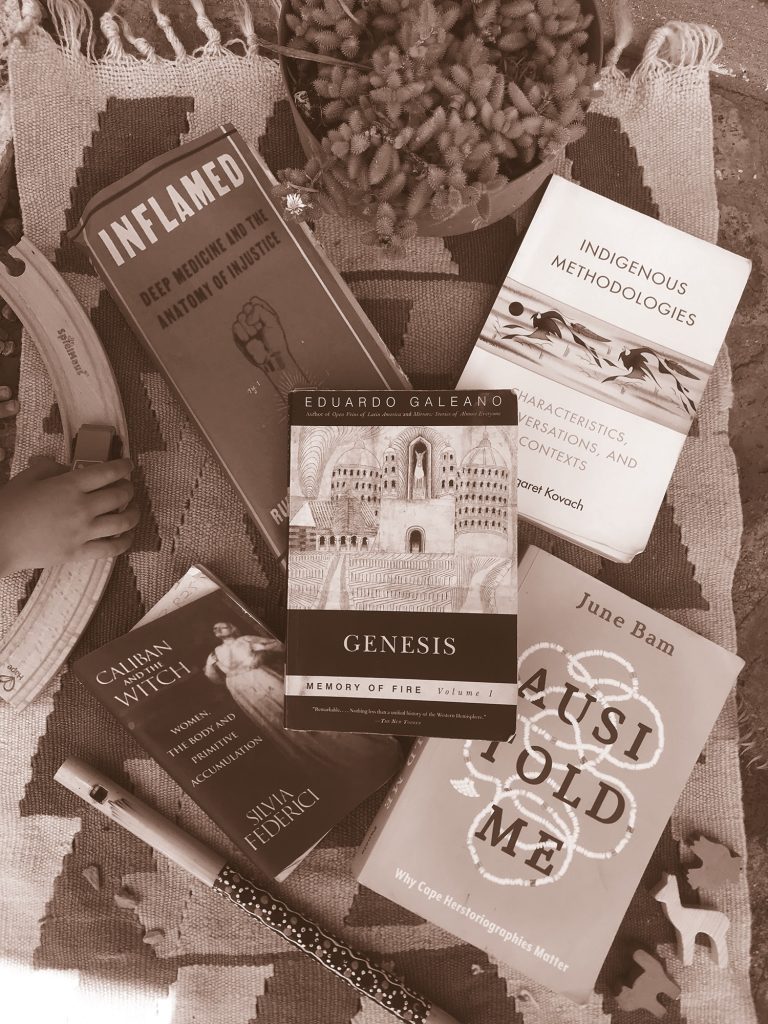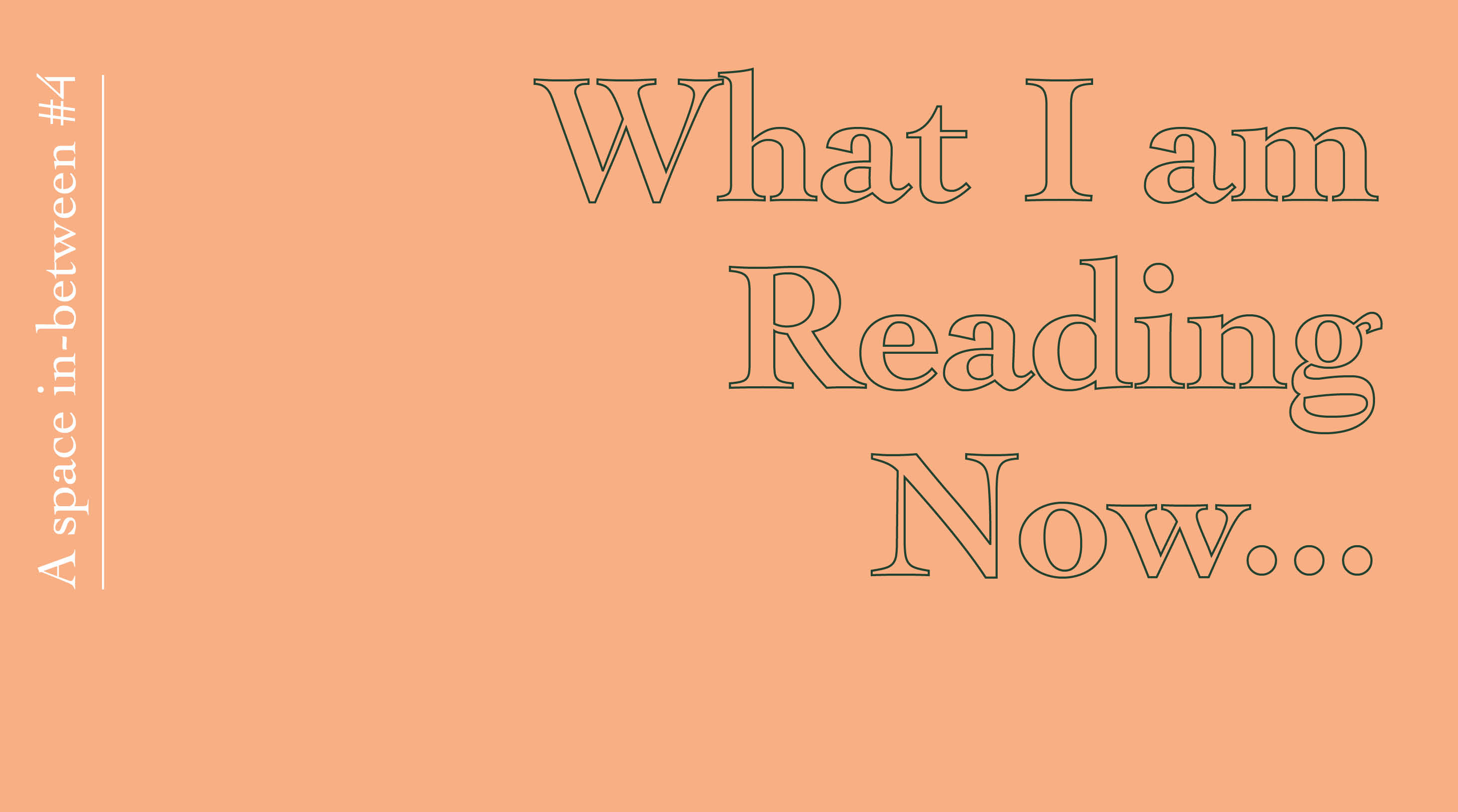What I am Reading Now…
taryn mackay
December 2022
“I told you son, black blood don’t die!”
(over-heard)
The birth of every Black child is a moment laden with radical potential. Those who answer the call to rear the child, tacitly or consciously, agree to confront the historical moment of now and unfurl a life-long project that will ultimately inform whether this new human, just born, will “fulfil or betray” the urgent work that only she, as an agent of history can do. As a mother of two young Black girl children in 2022, born and bred in the majestic and yet tormented space in southern Africa I choose to call Azania, my parenting is first informed by the fact that we, all of us with the critical consciousness to understand exactly who and where we are in history and what this moment requires, have not done enough. Our children have been born into a world programmed to capture, shackle, insult, assault and ultimately silence them and those who share their genetic memory and power.
And so I have, what at times feels like the most unenviable and in other moments, the most exhilarating task. To acknowledge the inherent autonomy and onboard guiding system of these fearless, irreverent harbingers of change who are innately trusting while, uploading, in as empowering way as I can work out, the immense weight of the political history of this moment. In doing so, I have to help bring into focus for them what this reality is asking of them and strengthen their resolve and capacity to do this work.
All of this is done with virtually no structural support and constant harassment and persecution. To sharpen the image of our resource context, South African woman receive a £23 monthly social grant to support the manufacturing of the next generation of human beings. This money is dispensed grudgingly and filtered through a popular discourse machinery which casts us as extravagant wasters of state funds standing in long queues to get our hair and nails done. To give a little more context, here £23 buys you about two big bags of disposable nappies.
So we resource ourselves as best we can. For these reasons I’m an activist who works inside horizontal community processes to build true liberation that changes the way we live, love and rear our young. I also turn to reading and reflection as a way to hear more about how this breathtakingly beautiful world and its inhabitants have gotten so badly off track. This informs how we strategise to get ourselves out of these coal-mines following the emotion-heavy canaries of memory and justice.
The reading list I share is a medicine pouch to tend to and resource the revolutionary mothers among us who tinker on the edge of sanity as they try to maintain tenderness, wonder and playfulness in an over-culture of greed, deceit and fear-mongering. It offers pre-colonial Origin Myths that have integrity and are rooted in the land so that we can begin to re-imagine where we come from as a beacon that can lead us to a more joy-filled tomorrow (Genesis). Scalpel in hand, it historicises and dissects the origin of allopathic, bio-medicine and finds its origin seed in the womb of the genocide of the more than 9 million European medicine women known as witches (Caliban and the Witch). Returning to the fireside, I offer the deep medicine of understanding the physiological impact of European colonial conquest on the social and physical body of the indigenous and, then seeking out the wisdom of our innate humanity that is premised on a lived reverence for the interconnected web of life (Inflamed). For many of us who are working inside the carcass of the rotting colonial educational infrastructure, we are searching for enlightened ways of uncovering and sharing knowledges. In so doing, we are actively building, while at the same time disembowelling, that which must be set aside. Indigenous Methodologies is a living project that calls on knowledge workers to uncover who they are as agents of history, do research from that identity and, document and share this process with others who are embarking on similar enquiries. Finally I offer work from my own soil which enacts this way of co-creating knowledge. An inspiring piece of work that, with loving-kindness, reveres and shares the advice shared by elder women in our communities. Advice, which despite decades of violence, brutality, cruelty and institutionalised hate remains intact and protected in our ritual archives (Ausi Told Me).
All of this comes from me and mine to you, with love and fire.
taryn mackay is a mother and activist who lives and works in both Orlando West, Soweto and Kuils River, Cape Town, South Africa. She is a PhD fellow at the University of Stellenbosch. Her research is focused on motherhood as a technology of practice that can provide pathways to deeply relational thinking as practised by Indigenous Knowledge Systems (IKS). mackay roots her research and practice in socio-political activism and positioning social justice as the framework for knowledge production. Everyday, together with her children and their community, they breathe life into the Ilima Growing Centre. This is a space where those committed to viewing childhood as a portal to justice, liberation, joy and unconditional love for Africa and the majority world can collectively reclaim the springs of life.
Reading
Genesis: Memory of Fire, Volume 1, Eduardo Galeano (Nation Books, 1985)
Caliban and the Witch, Silvia Federici (Autonomedia, 2004)
Inflamed: Deep medicine and the anatomy of injustice, Rupa Marya & Raj Patel (Penguin UK, 2021)
Indigenous Methodologies: Characteristics, Conversations, and Contexts, Margaret Kovach, (University of Toronto, 2009)
Ausi Told Me, June Bam (Fanele, 2021)

Please note the views published in What I am Reading Now… are personal reflections of the contributors.
These may not necessarily represent the views of the University of Dundee.
———
Previous Issue: Saoirse Amira Anis, November 2022
Next Issue: Sophia Al-Maria, January 2023
